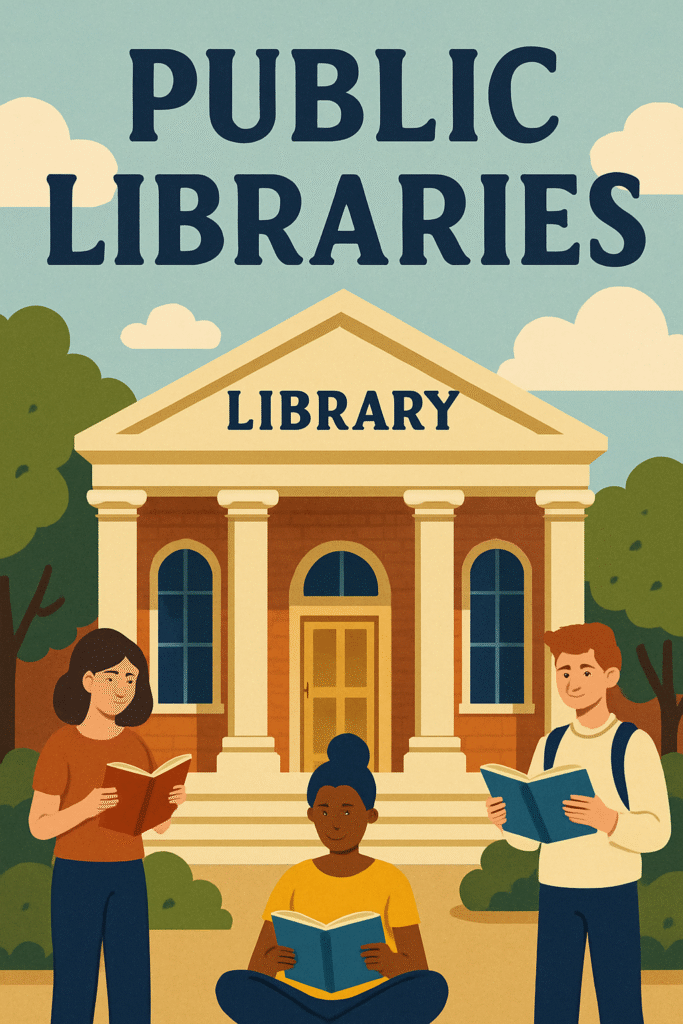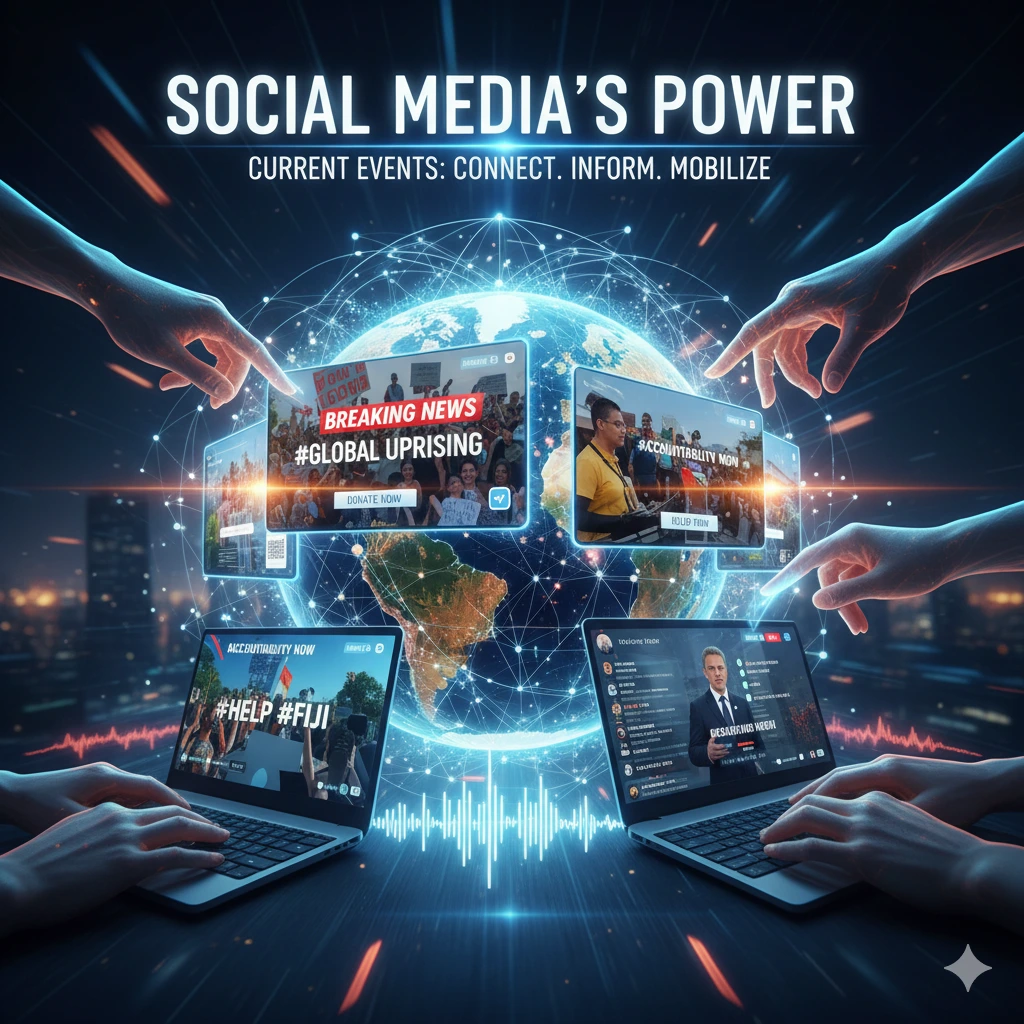Public Libraries are More Important Than Ever

Discover the invaluable resources and services offered by public libraries. Explore books, programs, and community events that enrich lives and foster learning.
Trending News Fox, Digital Desk Team, Kolkata
Edited by Saibal Bose
Not Just Books: Why Public Libraries are More Important Than Ever
In an age dominated by instant digital access and endless online content, one might wonder about the relevance of a seemingly ancient institution: the public library. Are they simply quiet, dusty buildings filled with books? The reality is far more vibrant and essential. Today’s public libraries have evolved into dynamic, multi-faceted community hubs, serving as pillars of knowledge, connection, and opportunity for everyone.
The Evolving Shelf: Beyond Print
While the comforting sight of shelves stacked with books remains a core part of the library experience, their offerings have expanded far beyond the printed page. Modern libraries are gateways to the digital world. They provide free access to computers and high-speed internet, a critical resource for those who may not have it at home. This access is crucial for everything from applying for jobs and accessing government services to connecting with family and pursuing online education.
Furthermore, libraries have embraced the digital revolution in their collections. Through platforms like Libby and OverDrive, members can borrow e-books and audiobooks directly to their personal devices, blending the convenience of digital media with the trusted curation of a library. They also offer access to vast databases, academic journals, historical archives, and specialized software that would otherwise come with a hefty price tag.
A Center for Lifelong Learning and Growth
Public libraries are one of the few truly democratic spaces for education. They are universities for the people, offering resources for every stage of life. For the youngest members of our community, libraries host story times and early literacy programs that build foundational skills and a lifelong love of reading. For school-aged children and teenagers, they provide safe spaces for studying, homework help, and access to research materials.
For adults, the learning never stops. Libraries offer workshops on a wide range of topics, from digital literacy and coding to resume writing and financial planning. They host author talks, language learning groups, and craft circles, fostering new skills and hobbies. In a rapidly changing world, the public library provides the tools for continuous personal and professional development, entirely free of charge.
The Heart of the Community
Perhaps the most vital role of the modern public library is its function as a community hub. It is a welcoming and inclusive third space—a place that is not home or work—where people can simply be. In an increasingly isolated world, libraries bring people together.1 They host community meetings, art exhibitions, and local history projects. They are polling places on election days and cool refuges during summer heatwaves.
They serve new parents connecting at a baby rhyme time, seniors attending a book club, and entrepreneurs using the free Wi-Fi to launch a business. The library is a melting pot of backgrounds, ages, and interests, fostering a sense of shared community and belonging that is invaluable.
By offering free access to knowledge, technology, and a safe, welcoming space, public libraries empower individuals and strengthen communities. They are not relics of the past but beacons for a more equitable and connected future. So, the next time you walk past your local library, step inside. You’ll find it’s about so much more than just books.
Public Libraries: Frequently Asked Questions (FAQ)
Q1: Is it free to join and use a public library?
A: Yes! Membership and access to the vast majority of resources at a public library are completely free for residents of the local area. There may be small fees for specific services like printing, photocopying, or for overdue or lost items.
Q2: Do I need a library card to visit?
A: You can visit, read books on-site, use the Wi-Fi, and attend many events without a card. However, you will need a library card to borrow books, e-books, and other materials, and to use the library’s computers or online databases from home.
Q3: Can I borrow e-books and audiobooks?
A: Absolutely. Most public libraries offer extensive digital collections of e-books and audiobooks through apps like Libby, OverDrive, or BorrowBox. You can borrow them for free using your library card and read or listen on your smartphone, tablet, or e-reader.
Q4: What if the library doesn’t have the book I’m looking for?
A: Most library systems have an inter-library loan service. If your local branch doesn’t have a specific book, they can often request it from another library in the network for you to borrow. You can also suggest new book purchases to your library.
Q5: What kinds of events do libraries host?
A: Libraries host a diverse range of events for all ages. These can include author talks, book clubs, children’s story times, STEM workshops for teens, computer skills classes for adults, craft circles, local history lectures, and community meetings. Check your local library’s website for their events calendar.
Q6: How are public libraries funded?
A: Public libraries are primarily funded by local or municipal taxes. They may also receive additional funding from regional governments, grants, and donations from community members and “Friends of the Library” groups. This public funding is what allows them to offer services for free to the public.
Tags: #PublicLibrary, #Libraries, #CommunityHub, #LifelongLearning, #DigitalLiteracy, #ReadMore, #SupportYourLibrary, #Books, #Ebooks, #Community, #FreeResources
Discover more from Trending News Fox
Subscribe to get the latest posts sent to your email.




